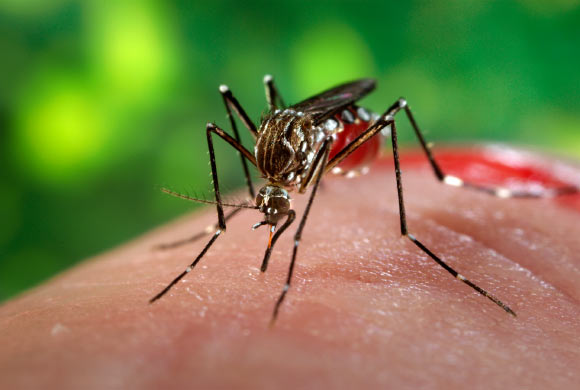Led by University of Texas Medical Branch researcher Prof. Scott Weaver, an international team of scientists is the first to directly connect Aedes aegypti with Zika transmission in the Americas, during an outbreak in southern Mexico.
In early 2015 the first Zika infections were described in Brazil, harbingers of an explosive hemispheric epidemic.
As of July 2016, local Zika infections have been reported in 39 countries and territories in the Americas, with the epidemic spreading throughout most of northern South America and nearly all of Central America and the Caribbean.
Many countries in North America and Europe have also reported hundreds of imported cases.
“Because several experimental studies have suggested that Aedes aegypti is not highly susceptible to Zika virus infection and there has been a lack of direct evidence of A. aegypti infection during outbreaks, some scientists have speculated that other common tropical urban mosquitoes such as Culex quinquefasciatus could be involved,” Prof. Weaver said.
“We sought to more directly investigate which mosquito is responsible for spreading Zika virus so that we can selectively tailor our mosquito control efforts to a specific mosquito species’ habits.”
The signs and symptoms of Zika infection are similar to the mosquito-borne diseases chikungunya and dengue.
However, near the beginning of the outbreak in November of 2015 physicians in communities on the Mexico-Guatemala border reported an increase in the number of patents showing signs and symptoms thought to be different from those of chikungunya or dengue.
To investigate this outbreak further, Prof. Weaver and his colleagues from Mexico and the United States completed a survey to identify patients who met the World Health Organization case definition of Zika virus infection in several locations in the Mexican state of Chiapas.
They collected 119 blood samples with permission from people suspected of Zika virus infection.
Zika virus was confirmed in 21% of the blood samples using a PCR-based test. No pregnant females were studied.
The team also gathered adult mosquitoes in and around 69 homes of suspected Zika patients using backpack aspirators, and identified Zika virus in several samples of A. aegypti but not in other mosquito species.
“Our study indicates that A. aegypti was the principal carrier of Zika virus in the Tapachula area of Chiapas State, based on the detection of virus in several mosquito pools and the prior demonstrated transmission competence of this species of mosquito,” Prof. Weaver said.
“It’s important to note that Zika was not found in C. quinquefasciatus, another common urban tropical mosquito discussed as a potential Zika vector.”
The findings were published online July 19 in the Journal of Infectious Diseases.
_____
Mathilde Guerbois et al. Outbreak of Zika virus infection, Chiapas State, Mexico, 2015, and first confirmed transmission by Aedes aegypti mosquitoes in the Americas. J Infect Dis., published online July 19, 2016; doi: 10.1093/infdis/jiw302








